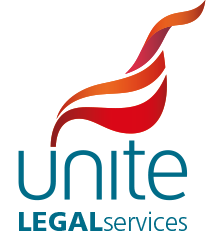Unite coronavirus COVID-19 advice
Unite the Union has developed a dedicated hub with all of the latest advice on coronavirus COVID-19 and your rights. This is being updated multiple times each day and covers all issues, sectors and news for Unite members.
For more information, visit the Unite the Union coronavirus COVID-19 advice hub here.
Coronavirus (COVID-19) personal injury advice line
Unite has set up a specialist legal team to advise and represent members who have suffered injury as a result of COVID-19.
If you have suffered injury from developing COVID-19, or have tragically lost a family member to the condition, then please call Unite’s COVID-19 PI team on 0800 709 007. Visit the COVID-19 personal injury claims page for more information.
How Unite is working to support you
We understand that many of our Unite members may already be directly affected by coronavirus COVID-19. As a matter of urgency, Unite is lobbying the government to ensure you will not be left without regular income, if your pay has been stopped or reduced.
Unite is here to support you and, now more than ever, our efforts are concentrated on:
- Ensuring the future of all industries under threat – especially if they are forced to close for long periods of time
- Keeping our members healthy and safe through this difficult time.
This page is dedicated to providing information and advice on employment matters in relation to coronavirus COVID-19.
Read a message of advice from Unite assistant general secretary Howard Beckett.
Are employees entitled to pay during a period of self-isolation?
Entitlement to Statutory Sick Pay:
- Statutory Sick Pay (SSP) will now be available for eligible individuals diagnosed with COVID-19 or those who are unable to work because they are self-isolating in line with government advice (Statutory regulations came into force across the UK on 13 March 2020 providing for payment during self-isolation).
- SSP will be payable from day one instead of day four for affected individuals.
- People who are advised to self-isolate for COVID-19 will be able to obtain an alternative to the fit note to cover this by contacting NHS 111, rather than visiting a doctor. This can be used by employees where their employers require evidence.
- Those who are not eligible for SSP, for example the self-employed or people earning below the Lower Earnings Limit of £118 per week, can now more easily make a claim for Universal Credit or Contributory Employment and Support Allowance:
1) For the duration of the outbreak, the requirements of the Universal Credit Minimum Income Floor will be temporarily relaxed for those who have COVID-19 or are self-isolating according to government advice, ensuring self-employed claimants will receive support
2) People will be able to claim Universal Credit and access advance payments upfront without the current requirement to attend a jobcentre if they are advised to self-isolate
3) Contributory Employment and Support Allowance will be payable, at a rate of £73.10 a week if you are over 25, for eligible people affected by COVID-19 or self-isolating in line with advice from day one of sickness, rather than day eight.
On 9 April 2020, the Government confirmed that employees who are self-isolating or on sick leave can be placed on furlough and paid in accordance with the Job Retention Scheme, although businesses cannot claim funding for SSP and furlough pay for the same period. See below for more information on what you should be paid if you are ‘furloughed’.
What about contractual sick pay?
Whether an employee who self-isolates without symptoms has a contractual entitlement to receive sick pay may vary. This will depend on how the employee’s employment contract defines the right to sick pay. Under many employment contracts, employees have no right to sick pay unless they are incapable of working. However, since statutory sick pay was previously payable only in respect of the period of ‘incapacity for work’, it is good practice for employers to pay contractual sick pay to those advised to self-isolate.
Unite is seeking agreements with all employers and government support to maintain normal pay for those who self-isolate.
On 9 April 2020, the Government confirmed that employees who are self-isolating or on sick leave can be placed on ‘furlough’ and paid in accordance with the Job Retention Scheme – see the next question for more information regarding the scheme.
Will I be paid if my workplace is closed, or I'm laid off or 'furloughed'?
Unless there is a clause that exists in the contract of employment which allows the employer to withhold pay if there is no work, the employer will be acting in breach of contract if they temporarily close the workplace and do not pay employees. This is known as lay-off. Home working is not lay-off; where this has been agreed, full pay should be maintained.
On 20 March, the Government announced that they would be introducing the Coronavirus Job Retention Scheme, which will provide employers with financial support to continue paying workers laid off (or “furloughed” as they are referring to lay off) because of the coronavirus outbreak:
-
The scheme will pay up to 80% of workers’ wages (capped at £2,500 per month) from 1 March 2020. Unite is calling on all employers to pay wages in full.
-
The scheme includes all workers that are paid by PAYE and were on the payroll on 28 February 2020, including those on zero hour, casual, part-time and agency contracts.
-
If your pay varies, the government funding is an average of your pay during the last 2019/20 tax year or your pay for the same month last year (whichever is higher).
-
Your employer must lay you off for a period of at least three weeks to claim funding. They should still pay your wages when they are due.
-
Your employment rights continue whilst you are laid off.
-
If you are not available for work due to sickness absence, this is not treated as being laid off for the purposes of the statutory scheme. When your sickness ends, you can be paid under the scheme.
-
Employees who are shielding in line with public health guidance can be paid under the scheme.
-
The scheme covers employees who have been made redundant since 28 February 2020, if they are rehired by their employer.
- The scheme covers employees that started unpaid leave after 28 February 2020.
- Employees who are unable to work because they have caring responsibilities resulting from coronavirus can be paid under the scheme – this includes employees who need to look after children.
- The scheme covers employees that transferred under TUPE or a change of business ownership after 28 February 2020, provided the TUPE or PAYE business succession rules apply to the change.
This means there is no reason employers need to lay off anyone without pay or make any redundancies. Employers can re-employ anyone they have already dismissed and obtain funding to pay their wages.
Unite will challenge employers that make redundancies or do not rehire members they have already dismissed since the outbreak. You should contact your Unite rep or officer for advice if this affects you.
There are separate rules that would normally apply when employees are laid off, including a statutory guaranteed payment for one week and if laid off for four weeks or more without pay, the right to claim redundancy pay. However, employers should not be laying off any workers without pay whilst the Job Retention Scheme is running and funding is available to them. You can see Unite’s guidance on lay off that would otherwise apply here.
The latest government guidance regarding the Coronavirus Job Retention Scheme can be accessed here.
What if an employer does not enforce COVID-19 hygiene rules or permits an employee who should be self-isolating to attend work?
Members should raise this with their Unite health and safety rep and/or line manager immediately.
Ultimately employees are entitled to remove themselves from the workplace if there is a real risk of serious and imminent danger, which they could not be expected to avert.
Any Unite member that finds themselves in this position should consult their Unite rep or officer before taking action.
What if an employee does not follow COVID-19 hygiene rules?
Employees are required to follow reasonable management instructions related to coronavirus workplace rights. If an employer requires employees to follow the PHE guidance (e.g. coughing into the crook of an arm) and has informed employees of the same but the employee does not comply, the employer will be entitled to take disciplinary action.
What is the legal position for employees anxious about returning to work due to COVID-19?
The government’s advice remains that employees should work from home, wherever possible. If the employee does not wish to attend work, and is not in one of the groups advised to self-isolate, the employer must listen to the concerns of the employee.
Employers are required to protect the health and safety of their staff. If there are genuine concerns, employers must try to resolve them for employees.
Acas suggests that the employer could consider offering flexible working or agree with the employee to take time off as holiday or unpaid leave. However, there is no obligation on an employer to agree.
An employee who has 26 weeks’ continuous service has a statutory right to request flexible working. An employer can refuse a request on a number of statutory business grounds. It is also important to be aware that any change to the contract is permanent unless the employer agrees it is for a temporary period.
Flexible working may not be possible for a large number of workers, particularly frontline workers. It is not hard to imagine a situation where employees say they are unwilling to attend work because one or more work colleagues are not following hygiene rules and they fear they are being placed at increased risk. In such situations, the employer will need to consider the employee’s concerns very carefully before deciding how to respond. In addition, in some cases, the anxiety caused by the outbreak of COVID-19 may itself render the employee unfit to work and entitled to sick pay.
What about risk groups and those with disabilities?
The government advises those who are in a vulnerable/at risk group are strongly advised to follow social distancing. On 16 March 2020, the government provided the following detailed list of the groups they advise to be at risk, which includes those who are:
- aged 70 or older (regardless of medical conditions)
- under 70 with an underlying health condition listed below (i.e. anyone instructed to get a flu jab as an adult each year on medical grounds):
- chronic (long-term) respiratory diseases, such as asthma, chronic obstructive pulmonary disease (COPD), emphysema or bronchitis
- chronic heart disease, such as heart failure
- chronic kidney disease
- chronic liver disease, such as hepatitis
- chronic neurological conditions, such as Parkinson’s disease, motor neurone disease, multiple sclerosis (MS), a learning disability or cerebral palsy
- diabetes
- problems with your spleen – for example, sickle cell disease or if you have had your spleen removed
- a weakened immune system as the result of conditions such as HIV and AIDS, or medicines such as steroid tablets or chemotherapy
- being seriously overweight (a body mass index (BMI) of 40 or above)
- those who are pregnant
Note: there are some clinical conditions which put people at even higher risk of severe illness from COVID-19. Make sure you know your coronavirus work rights. Those in this extremely vulnerable risk category, should have been contacted from 23 March 2020 by the NHS with advice on the more stringent shielding measures they should take for 12 weeks from receipt of their letter in order to keep themselves and others safe. For now, they should rigorously follow the social distancing advice in full. People falling into this group are those who may be at particular risk due to complex health problems such as:
- people who have received an organ transplant and remain on ongoing immunosuppression medication
- people with cancer who are undergoing active chemotherapy or radiotherapy
- people with cancers of the blood or bone marrow such as leukaemia who are at any stage of treatment
- people with severe chest conditions such as cystic fibrosis or severe asthma (requiring hospital admissions or courses of steroid tablets)
- people with severe diseases of body systems, such as severe kidney disease (dialysis)
If you fall into any of these above at risk groups, you should inform your employer of your health status immediately.
The employer must perform a risk assessment to assess your likely exposure to COVID-19 and any mitigating control measures that can be enacted, then implement these as soon as possible to provide a safe working environment.
This may require you to work from home, stagger working time – arrival and departure - where possible or change job roles.
If an employee has a disability defined by the Equality Act 2010 which could compromise their immune system or pose a higher risk of developing severe COVID-19, the employer may have a legal duty under the Act to make reasonable adjustments to the employee’s working arrangements.
COVID-19 related employment law advice line
If Unite members need advice on a COVID-19 related employment law query that is not covered by the information above, and your workplace rep is not available, you can call Unite’s dedicated COVID-19 Legal Advice Line on 0333 202 6557.
The content on this page was last updated 18 November 2020.
Claim Now
Contact us on 0800 709 007 today for free, expert advice



